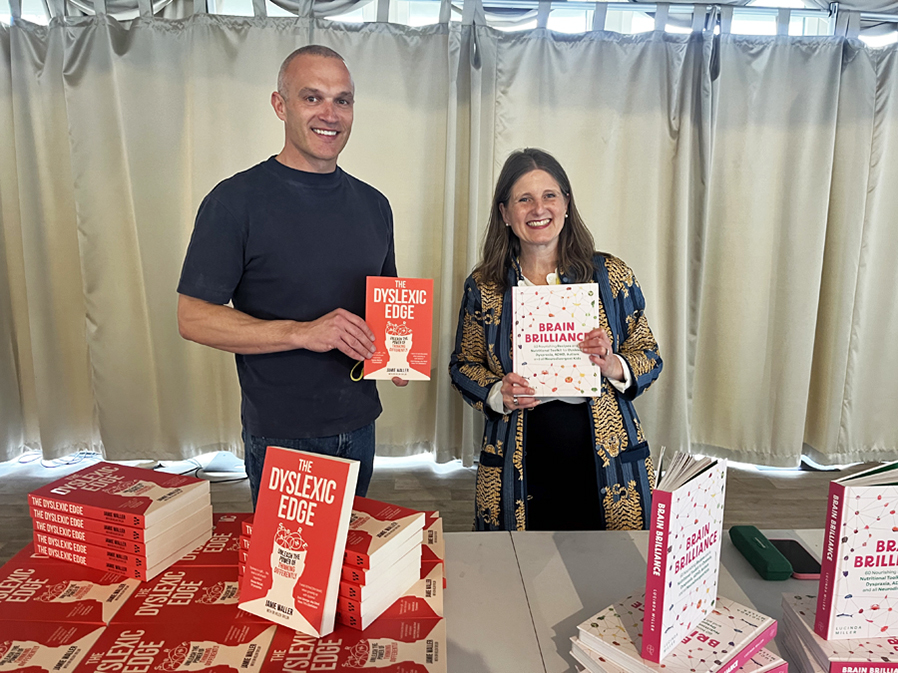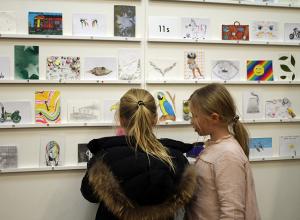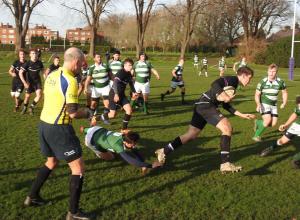
Neurodiversity Week provided Harrodians with an insight into the brilliance that neurodiverse people bring to careers in fields as diverse as business, design and cooking as well as to consider the special challenges they face in making it.
If you still think of dyslexia and ADHD as a disadvantage, something that inhibits those it affects from acquiring the skills that are vital to success in life, I suspect half an hour in the company of Harrodian parent, proud dyslexic and successful entrepreneur Jamie Waller, might be enough to change your mind.
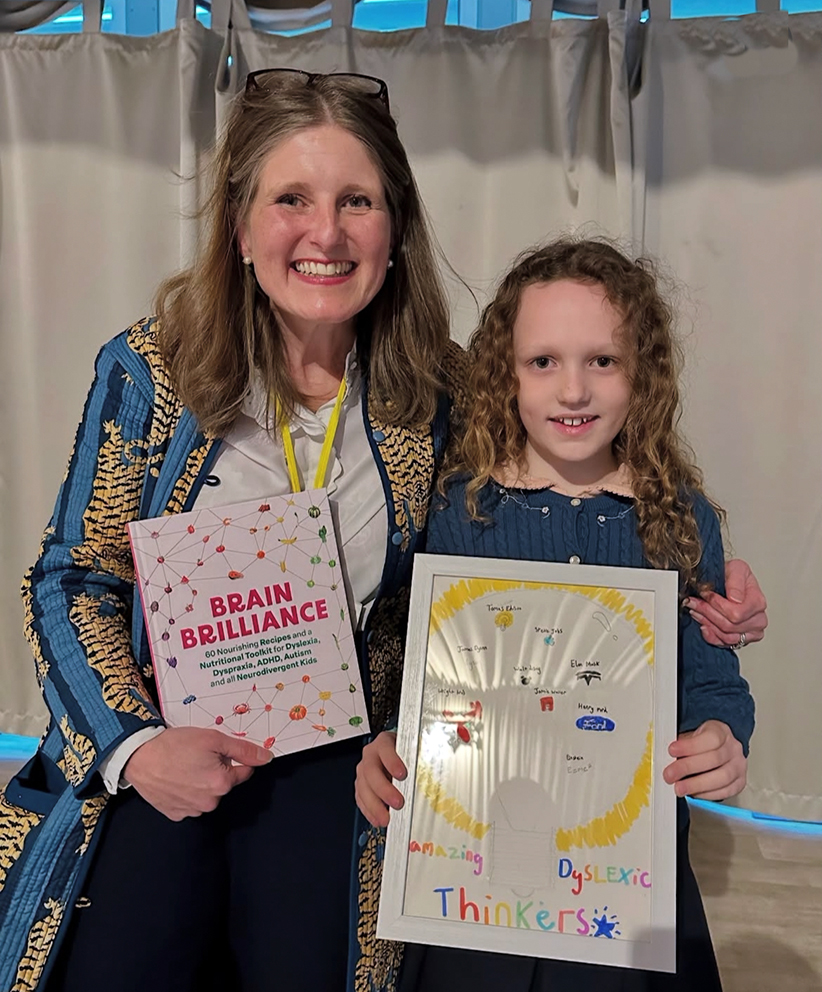
As he explained to an enthralled audience of parents and pupils as part of Harrodian’s programme of talks for Neurodiversity Week, far from being a drawback, Jamie Waller sees dyslexia as a business 'trump card' pointing to statistics showing that 40% of Britain’s self-made millionaires are dyslexic. ‘The dyslexic brain is always looking for workarounds because that’s what it’s good at,’ he writes in his book The Dyslexic Edge. ‘If you can’t do things the conventional way, you figure out a different way and I was always looking for more ways to make money.’
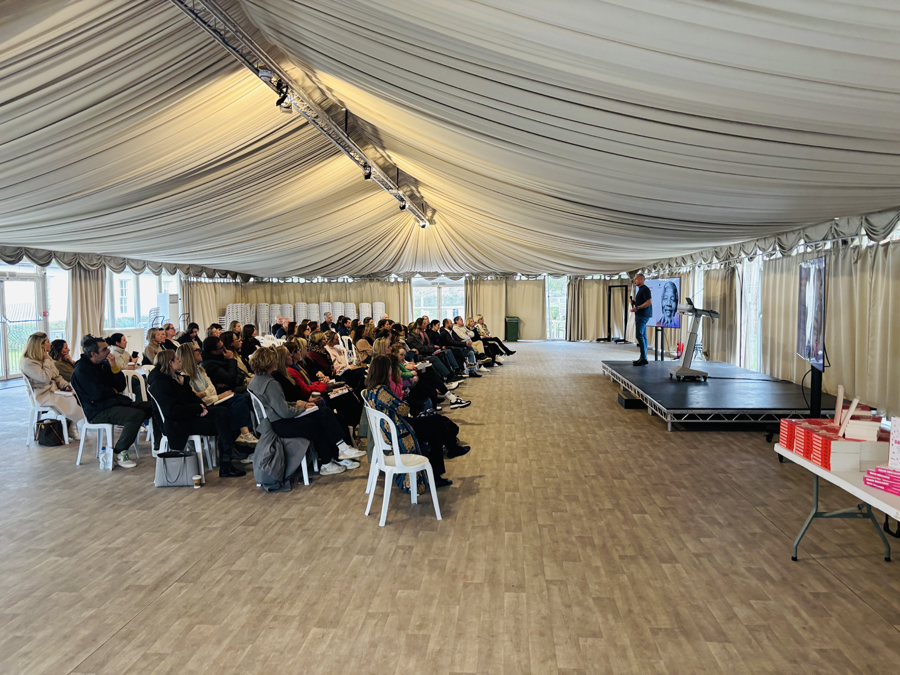
The dyslexic brain is always looking for workarounds because that’s what it’s good at. If you can’t do things the conventional way, you figure out a different way
Jamie Waller, dyslexic entrepreneur and Harrodian parent
Mr Waller’s CV proves the point. Despite a school career which saw him leave school at 16 to begin work as a hod carrier, he rose rapidly in business after humble beginnings that saw him working as a window cleaner, a car salesman, and then a bailiff. At 46, Mr Waller is now a venture capitalist entrepreneur specialising in Fintech with a portfolio of companies employing 2500 people and worth £150 million. Six months ago, he also achieved international author status with the global launch of his aforementioned book, free copies of which he generously distributed at every event throughout the week.
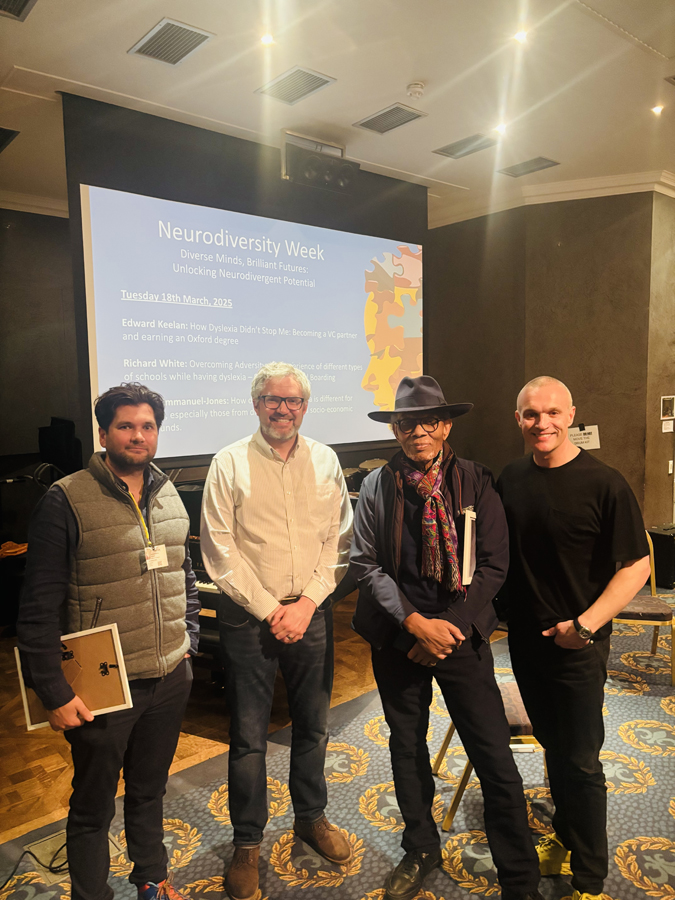
A passionate warrior for the dyslexic cause, Mr Waller’s ambition is to ensure that children with his special mindset should not face the struggles he did at school. ‘I don’t want today’s schoolchildren to feel drained of confidence,’ he says. Mr Waller worked closely alongside Ms Rachel Kimber, Harrodian’s Head of Learning Enrichment, and Mr David Sanders Head of Curriculum and Assessment to create Harrodian’s Neurodiversity Week Programme this year.
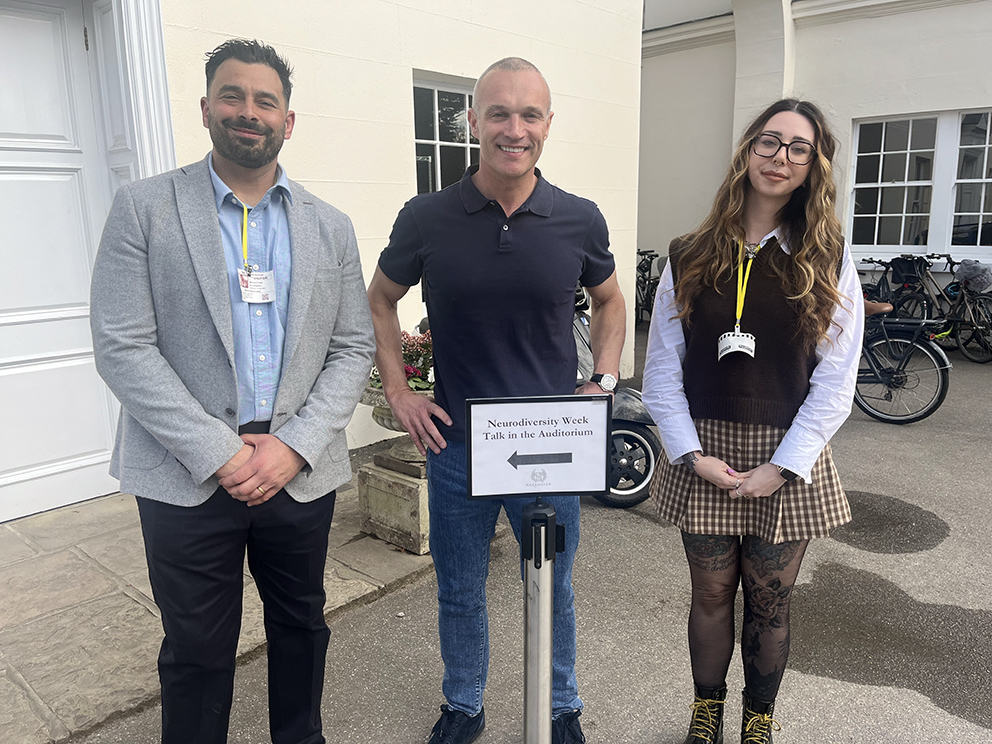
Neurodiverse individuals and their families face unique struggles that aren't understood. This week gives us the chance both to consider the challenges they face and to appreciate the brilliance that neurodiverse people bring to the world
Rachel Kimber, Harrodian Head of Learning Enrichment
Entitled Diverse Minds, Brilliant Futures: Unlocking Neurodivergent Potential, this week’s programme included contributions from neurodiverse speakers with stories to tell: among them naturopath, nutritionist and clinical lead at NatureDoc Lucinda Miller, Blue Peter vet, Rory Cowlam, Chef Philli Armitage-Martin and rugby Player and entrepreneur, Ben Gotting as well as key figures in the Neurodiverse community such as Ellen Broomé, Head of the British Dyslexia Association and Harrodian parents and pupils with personal experience of coping with neurodiversity in the school context. Meanwhile, pupils were reflecting on and celebrating Neurodiversity Week in various classroom activities and were invited to take part in a whole school art competition. The winners, below, then presented their framed artwork as a gift to each of our special speakers.
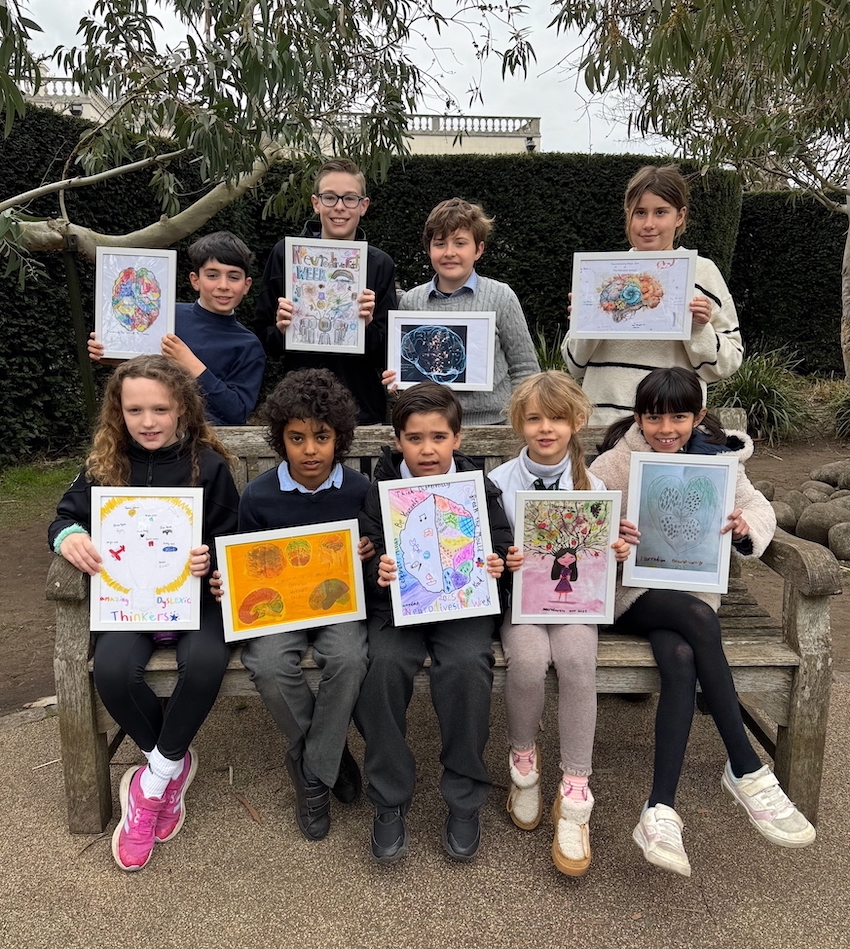
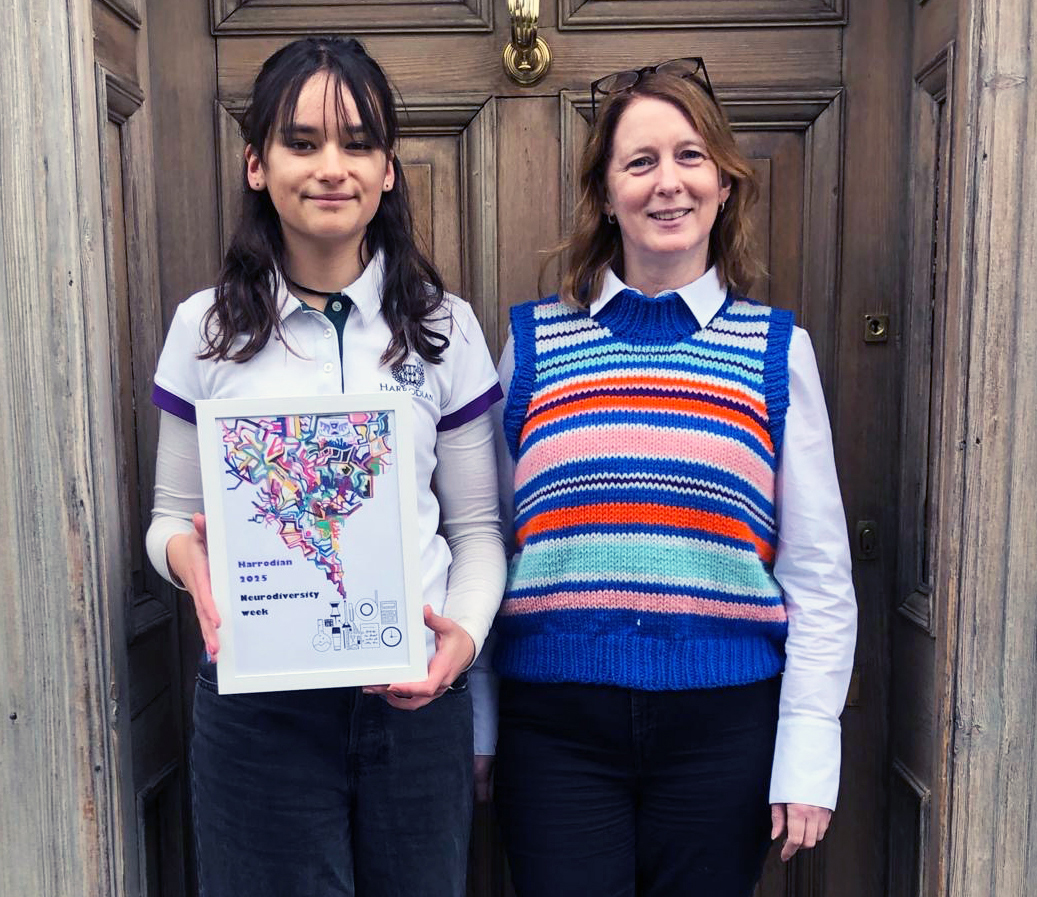
Harrodian’s Ms Rachel Kimber, who also took part in a Q&A with Jamie Waller as part of the line-up, was delighted by the impact and the variety of the week’s events. ‘Neurodiverse individuals and their families often face unique struggles that aren't always understood,’ she says. ‘This is a week that gives us the chance to both consider the challenges they face and to appreciate the brilliance that neurodiverse people bring to the world. It’s a valuable reminder that people with conditions such as autism, ADHD and dyslexia can enrich society in ways that many of us might not yet realise.’
